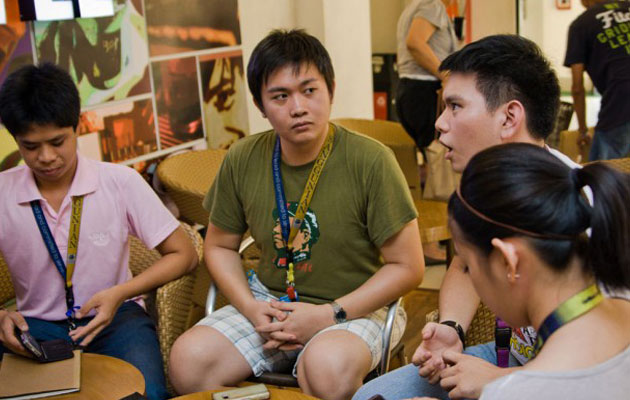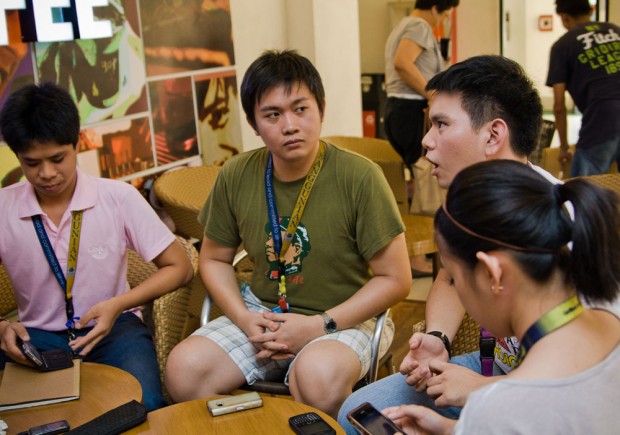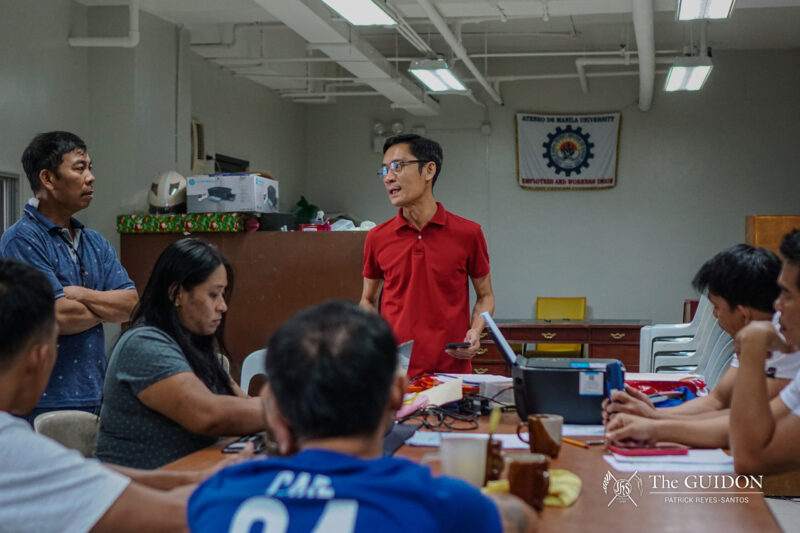THE DISBANDMENT of Ateneo’s oldest accredited political party, Partido IsaBuhay IsaGawa – Agila (IBIG-Agila), spurred some former members to create two new, separate political parties.
Sanggunian Vice President and former IBIG-Agila Chairperson Gio Alejo is currently organizing the League of Atenean Youth for Liberal Advocacy (Partido Loyola), serving as its chairman pro tempore. The other interim officers of the said party are Sanggunian Secretary-General Ian Agatep as executive vice chariman, Junior Communication Course Representative Mark Alcantara as secretary-general, and former IBIG-Agila President Drex Oarde as treasurer.
Meanwhile, another new party is also in the works, headed by School of Humanities (SOH) Junior Central Board (CB) Representative AJ Elicaño. Elicaño refused to divulge any more information as of press time.
IBIG-Agila’s disbandment over the semestral break came in the midst of its “restructuring” efforts. Last September, Alejo dismissed rumors that the party was about to disband, saying that it was merely being restructured to address member dissatisfaction within the party.
Oarde added that the party needed to identify its central ideology, revise its constitution, and fix its internal procedures and the structure of its executive board.
After news broke of IBIG-Agila’s disbandment, Alejo explained that the party’s ideologies no longer fit the current needs of the Ateneo community.
He also said that a number of members have resigned from the party, which prompted its dissolution.
All members of IBIG-Agila who served in the School of Social Sciences (SOSS) school board left the party last November 4. The following day, SOSS sophomore Central Board Representative Dan Remo and the School of Humanities school board followed suit.
Reacting to IBIG-Agila’s dissolution, political science organization The Assembly released a statement last November 22, calling the political party’s decline “inevitable,” with its lack of a concrete ideology “[dooming the party] to failure.”
Decentralization and localization
Alejo’s new political party cites “liberal ideology” as its mantra. Alejo said that democracy plays a big role in the formation of the values of the new party, with liberty, equality, and fraternity as the base points.
He stressed that the decentralization of power in the new party ensures that competent leaders—not necessarily the party’s top officers—can run for party elections.
“We’re trying to decentralize [power]. The power is not centered in the top officers, but it will be more decentralized in such a way that each school will have [its] own boards. The boards will be the ones to elect, to choose who among themselves will run for various positions in the school board,” Alejo said.
Agatep added that the localized system can train party members to be competent leaders.
“Think of it as a structure inside a certain group where it is localized in one way or another to make sure that not only the top officers of a certain organization or party are qualified to run for certain boards,” he said.
Oarde said that Partido Loyola plans to encourage students to step up in running for a position in the party. She thinks that a candidate’s competence can only be scrutinized effectively if they had opponents in securing the party’s official nomination, as this will reflect a candidate’s strengths and weaknesses when compared the rest.
She added that there would be a demarcation of duties among members of the new party, which had been a problem in IBIG-Agila.
“It has been a problem for IBIG-Agila for the past few years that members of the executive board are also part of the Sanggunian,” she said.
“Now, we are drawing the line between students involved in Sanggu and those who are not. The former will focus only on Sanggu while the latter on the party, so that the party will not be neglected,” she added.
Alcantara noted that IBIG-Agila tended to be idle after the Sanggunian general elections, as some members who had won seats in the student council got tied to Sanggunian duties, while others neglected the party’s own projects.
The demarcation of duties in the new party, he said, will ensure that Partido Loyola’s projects will not come to a standstill.
Campus politicization
Partido Loyola’s interim officers also stressed their intent to improve student engagement.
“We want students who can engage themselves in different issues both inside and outside the school,” said Alejo, citing national issues such as the Philippine Airlines conflict and the debate surrounding the Reproductive Health bill.
Agatep added that the party wanted to become an avenue for students to take action based on their stances on current issues.
“In due time, we leave a notion that there is such a thing that students can learn from a political party. [The students] themselves, when they come into Sanggu, reach a point that they stand their ground and say that this is what we can do in one way or another to politicize the whole of Ateneo,” he said.
Parties in the making
The four interim officers estimate that the official formation of the new party will take about a year.
They stressed that Partido Loyola is not simply a rebranding of IBIG-Agila, but a completely different party.
As of press time, they are consulting with experts on the draft of their constitution.
Meanwhile, Elicaño refused to give clear details regarding the separate party he is working to establish.
“We’re definitely students-first, and looking for something different than the usual hierarchical, top-down brand of leadership,” he said.
No hard feelings
SOSS Chairperson and former IBIG-Agila member Ana Raymundo said that there was nothing personal behind the disbandment of IBIG-Agila and the mass resignations that preceded it.
“Believe it or not, we don’t take things personally. We’re still friends now; we all still talk [with each other]… Agila’s Agila. We don’t even mix Agila with Sanggu,” she said.
Raymundo resigned together with several other SOSS officers last November 4. She said that they resigned in order to focus more on their school board.
“In the first place, we exist for our constituents—not for the party, but for them. So, [our] first priority is to them,” she said.
Elicaño saw the disbandment as a blessing in disguise.
“As much as we love our homes and are forever grateful to them, growing up entails leaving home, taking what lessons we can… and trying to build something better for ourselves. And the dissolution has given me, at least, a chance to do that,” he said.
But for The Assembly, the fall of IBIG-Agila is no cause for mourning, as the organization claims that the party had “ceased to be political long ago.”
“IBIG-Agila neither had an ideology nor did its members believe in ideology,” the statement read.
“Their brand of politics… ensured the existence of irreparable contradictions. When the time came for IBIG-Agila to finally be pressured to ask itself, ‘What do we believe in?’ perhaps it dawned upon them that they never believed in anything at all.”
IBIG-Agila’s disbandment leaves the Christian Union for Socialist and Democratic Advancement (Crusada) as the only remaining accredited political party in the Loyola Schools.
With reports from Pauline V. Miranda
Update: Elicaño’s new party has since introduced itself to The GUIDON. The party is named the Movement for Ignatian Initiative and Transformative Empowerment (Ignite Movement). SOSS Chairperson Ana Raymundo is the president of the new party.








